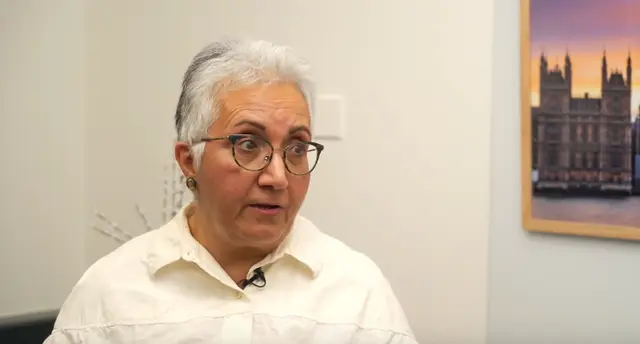Alka Sehgal Cuthbert, who has over 30 years experience as an educator, was due to appear at a panel at the Rethinking Education Conference on Saturday, an event that aims “to improve the way we educate current and future generations.”
Mrs. Cuthbert is the director of Don’t Divide Us (DDU), an organisation set up to take a stand against the UK’s “divisive obsession with people’s racial identity.”
‘Ludicrous’
She told The Epoch Times that she was told that seven people rang to complain that they felt “psychologically hurt and distressed” at the presence of a speaker from DDU at the conference.
She said that the organiser said he had “a duty of safeguarding.”
“And I pointed out safeguarding didn’t really apply to adults, it was for adults to protect children, or vulnerable people. This was a conference of educators, adults, for teachers,” she said.
“The absurdity of the psychological harm thing is really ludicrous,” she said, adding that just seven people “prevented potentially” hundreds of people from listening to her on the panel.
Not Feel Safe To Speak
A spokesman for Rethinking Education Conference pointed The Epoch Times to a statement by Rethinking Education Director James Mannion.
The statement confirmed that it had “taken the difficult decision to ask Alka Sehgal Cuthbert not to attend the conference tomorrow.”
Mr. Mannion said that he was “prioritising the safety of our speakers and delegates.”
Anti-Racist Policies
DDU has done several investigations into anti-racist policies, which they say impose new ideologies on institutions which in turn are “re-racialising” society.
It has an advisory council that includes notable figures from the debate on race and education, including Chair of the Commission on Race and Ethnic Disparities Tony Sewell CBE, researcher and commentator Rakib Ehsan, and former editor of the Jewish Chronicle Stephen Pollard.
“Once CRT is accepted as a basis for school policies, it becomes easier to treat groups of pupils differently according to skin colour, and an important part of schools’ traditional socialising role, to create a common culture through a shared effort to realise educational aims, becomes very much harder, if not impossible,” wrote the DDU.
It found that the vast majority (88 percent) of councils partner with third-party providers to push key concepts such as “structural racism,” “white privilege,” and “unconscious bias.”
It added that the “lack of standardisation” of where and how such materials are made available “contributes to the problem of transparency and accountability.”



